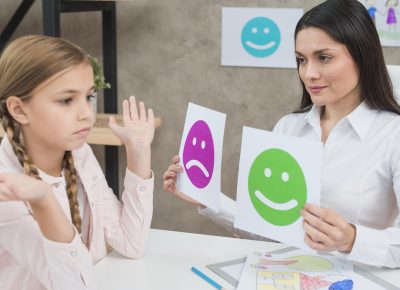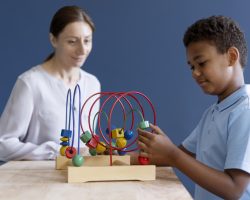Social Acceptance for ADHD Children

“My ADHD child is very sensitive and craves to be part of a group at school. He tries very hard, but the other kids tend to reject him.”
Rejection from peers is something all kids experience at one time or another. Unfortunately, rejection for children with attention deficit disorder (ADHD or ADD) is often the norm. As tempting as it may be to solve your child’s problem, first think about how the rejection is demonstrated. If it is in the form of harassment, physical abuse, or extreme verbal abuse, it must be reported to school officials or even to law enforcement.
If your child is being rejected by being ignored or is otherwise socially isolated by his peers, it is best to use this experience as an opportunity to learn coping strategies, social skills, and self-reliance. Reporting rejection from peers often increases aggressive behavior from the offenders because they may resent being reprimanded for their behavior. As a parent, you must decide whether or not approaching school officials is best for your child. When approaching school officials to address issues of rejection by isolation, it is best to enlist the help of the school’s guidance counselor to assist with learning the best approach.
Another way to help your child be accepted by his peers is to get the teacher involved by modeling your child’s strengths to the class by assigning him a role in the class that is highly regarded as important to all students. Tasks can be assigned according to the child’s age and classroom jobs. Most importantly, the teacher needs to verbally reinforce the student’s strengths and positive attributes in front of peers. It is crucial for the teacher to create a positive emotional tone and classroom climate for your child by acknowledging him as worthy without making it obvious and singling him out.
[Free Friendship Guide for Kids with ADHD]
In the meantime, get your child involved in some activities outside of school where he can be part of a social group, experience some acceptance, and build self-esteem. Check to see if your community has friendship-building or social skills training groups to enhance your child’s skills and increase his comfort zone when interacting with others. Watch appropriate TV shows that feature children interacting and discuss what they are saying and how they use facial expressions and body language to communicate. For example, Mr. Bean, from the British comedy television series of the same name, solves problems that occur when performing everyday tasks. He doesn’t speak and uses physical humor when interacting with others. Kids of all ages love to watch his antics. You can search for him on YouTube as the series ended in 1995.
Dr. Rick Lavoie has exceptional insights and strategies for helping children who are different. (Notice I said not better or worse, just different.) He has published a book and video titled, It’s So Much Work to Be Your Friend. I highly recommend this to help you in helping your child succeed. Download this article (PDF) for excellent “ADDvice” from Dr. Lavoie on coping with rejection and isolation from peers.
[Free Webinar Replay: Improve Your Child’s Social Smarts with YouTube, Video & Board Games ]
 Linda Karanzalis, MS
Linda Karanzalis, MS
Linda Karanzalis, MS, is a former special education classroom teacher with over 25 years of experience in the areas of learning disabilities, ADHD, social-emotional learning, social skills training, and behavior management













